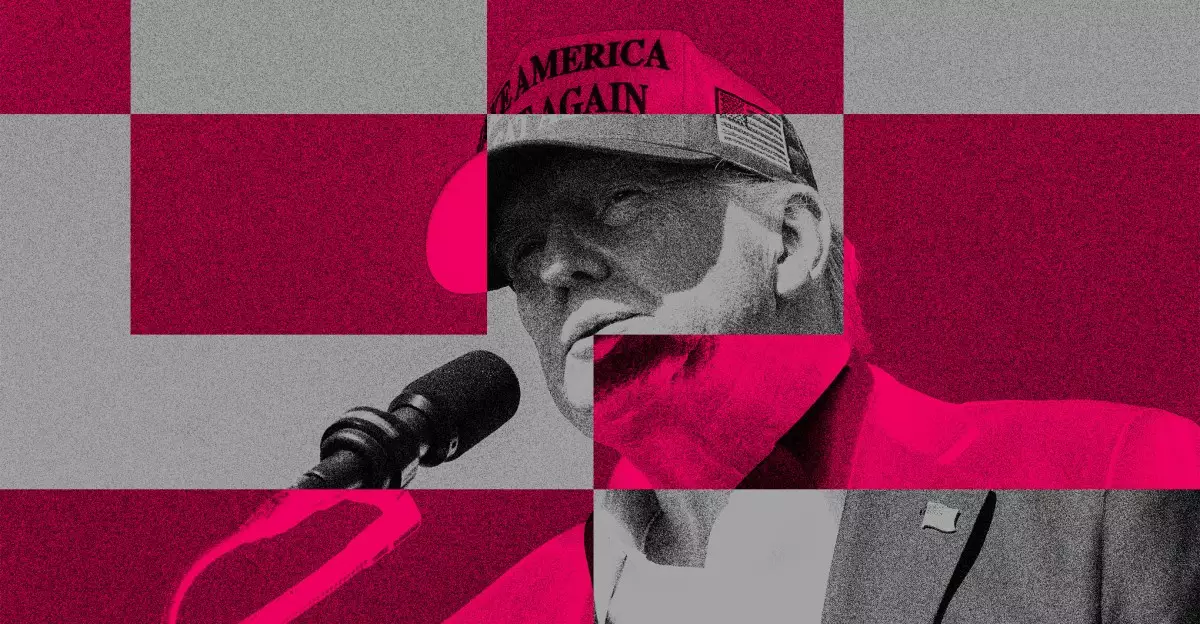Despite the swirling controversy and the unresolved legal battles over TikTok’s future in America, the Trump administration’s recent actions suggest a nuanced approach that blurs the lines between confrontation and engagement. While publicly championing the so-called threat TikTok poses to national security, the administration has quietly dipped its toes into the platform’s viral pool by creating its own official presence. This duality exposes a fundamental inconsistency: a government that claims to want to rid itself of a platform, yet recognizes its strategic power as a propaganda and influence tool. This contradiction is revealing—highlighting how authority figures often wield technology not purely as a tool of control, but as a means of shaping narratives and capturing public attention.
The Political Calculus Behind TikTok Engagement
For Trump, TikTok is more than just a social media app; it’s a battlefield for political dominance in the digital age. His decision to establish an @WhiteHouse account amid ongoing legal uncertainties is not merely an act of defiance but a calculated move to remain relevant—especially among younger voters. In a landscape where social media influence directly correlates with electoral power, Trump’s team recognizes that engagement on TikTok can be a strategic asset. By sharing content that celebrates accomplishments and fosters a sense of patriotism, the administration is subtly branding itself as a champion of “American values,” even as it controversially debates banning the platform altogether. This manipulation of public sentiment underscores an essential truth: in politics, control is often secondary to visibility.
The Influence of Viral Content as a Political Weapon
Trump’s re-election campaigns exemplify how social media algorithms amplify messages that resonate—regardless of traditional political decorum. His campaign’s TikTok account, boasting billions of views, demonstrates a mastery of platform culture that old-school politicians struggle to grasp. What makes this so potent? It’s the platform’s entertainment-driven ethos that Trump’s team has exploited to craft viral moments. This is modern political messaging at its finest: a blend of nostalgia, patriotism, and spectacle, designed to captivate audiences that might otherwise overlook traditional campaign ads. The stark contrast between the controversial ban and the platform’s undeniable power as a messaging tool reveals a profound miscalculation by those seeking to dismiss TikTok’s influence—it’s a platform they can’t afford to ignore, even if they publicly denounce it.
The Endgame: Power, Influence, or Both?
The Trump administration’s oscillation between ban threats and strategic engagement is emblematic of a broader trend in the digital age: the recognition that control over social media platforms confers not just influence, but a form of soft power. By maintaining a presence—even a provocative one—on TikTok, Trump underscores an important point: banning or banning rhetoric may be more about optics than substance. The true power lies in understanding how these platforms shape narratives and mobilize voters. The Biden administration’s efforts to unwind the TikTok dilemma through legal measures clash with Trump’s apparent flirtation with the platform’s potential, revealing a deeper truth: modern politics is less about outright bans and more about harnessing the social media machinery for strategic advantage.
Reevaluating the Future of Tech and Politics
The conflict over TikTok encapsulates a broader debate about the role of technology in democracy. Should platforms be trusted or feared? Is government intervention necessary, or does it simply deepen the divisions? Trump’s approach illustrates a compelling paradox: the very tool he seeks to eliminate has become an integral part of his political toolkit. The outcome of this ongoing saga will likely influence how future administrations approach social media regulation. More than a legal issue, it’s a contest of influence—one that reveals how modern power is wielded at the intersection of technology, culture, and politics. As the boundaries between entertainment, propaganda, and information continue to blur, one thing remains certain: whoever masters the digital narrative ultimately holds the keys to power.


Leave a Reply